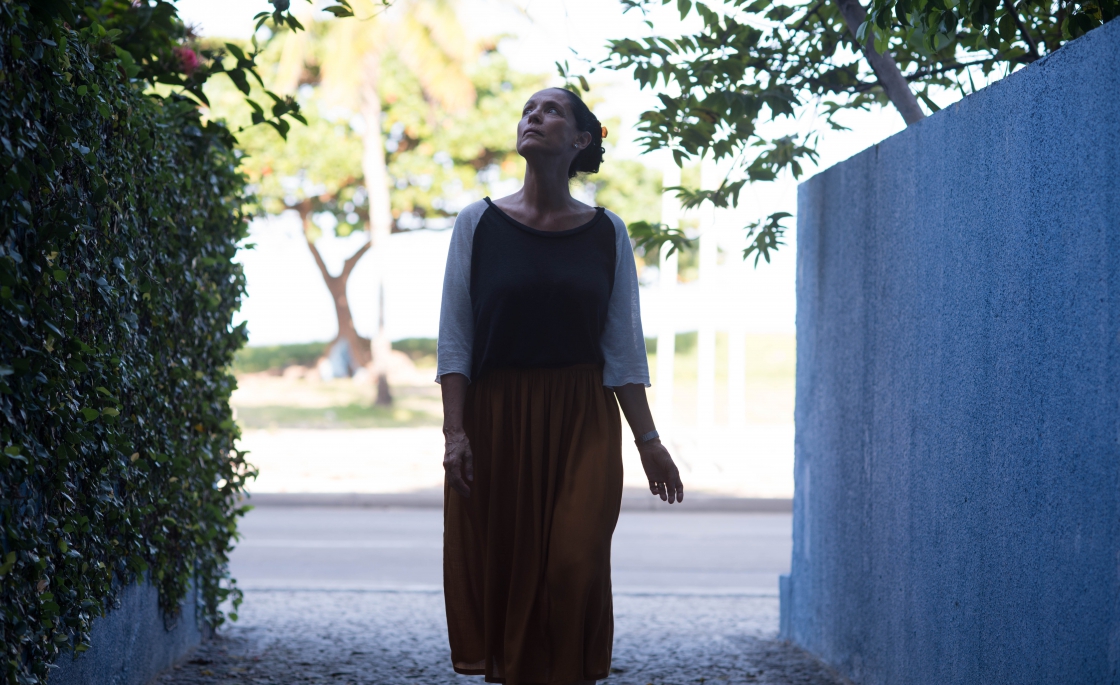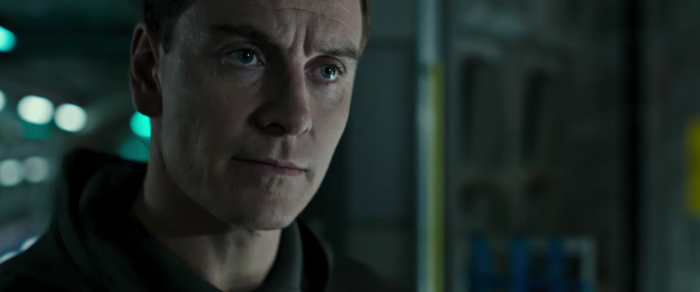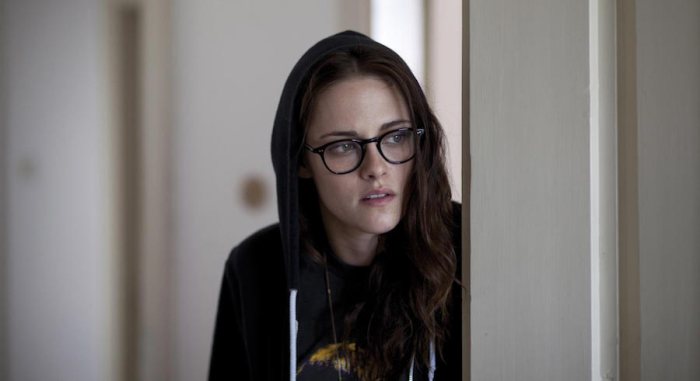It’s the halfway mark during the 2016 New York Film Festival, which many big (and worthy) titles still yet to bow. Here’s what’s what for the second week:
RELATED: Ava DuVernay on “13th” to make Americans “think differently” ‘Aquarius’ ‘The B-Side: Elsa Dorfman’s Portrait Photography’ ‘Fire at Sea’ ‘Graduation’ ‘Hermia & Helena’ ‘Karl Marx City’ ‘My Entire High School Sinking into the Sea’ ‘Personal Shopper’ ‘Restless Creature: Wendy Whelan’ ‘Sieranevada’ ‘Son of Joseph’ ‘Staying Vertical’ ‘The Unknown Girl’ ‘Yourself and Yours’ Capsulized last week but playing this week, too:
‘Abacus: Small Enough to Jail’ ‘Manchester by the Sea’ ‘Moonlight’ The New York Film Festival runs through Oct. 16. Visit the site for showtimes and tickets. Follow Matt Prigge on Twitter @mattprigge and Abbey Bender @Abbey_Bender
Don’t mess with Sonia Braga. The Brazilian actress is one of international cinema’s great firestarters, and at times “Aquarius” plays like an issue film crossed with a rah-rah crowd-pleaser. To wit: Braga plays an aging, nostalgic music critic who has no interest in selling her longtime, seaside apartment to courteous but persistent, even scheming housing developers. Thing is, the latest from director Kleber Mendoca Filho (“Neighboring Sounds”) is only this movie half the time. The other half is a character study and a bittersweet portrait of living with the past. Every time you settle into one of its grooves, it jerks you out, keeping you on your toes. We don’t advise Shazam-ing while in a movie theater, but make sure you get the names on its killer playlist of Brazilian obscurities (plus some classic Queen). (Matt Prigge)
Errol Morris’ latest may be the most shocking film he’s ever made: It’s nice. A typical Morris film finds him sitting down with death row inmates, Holocaust deniers and right-wing warmongers. “The B-Side,” by contrast, hangs with Elsa Dorfman, a longtime portraitist and New York wallflower, known for her massive, full-length snaps of people in slightly off-moments of formal comfort. No one could hate her, and no one could accuse her of doing anything less than good for humankind. Morris ditches most of his bag of tricks; there’s not even an Interrotron, and instead of shooting her in symmetrical frames, he sidles up next to her, usually shooting her from angle, creating intimacy, not interrogation. Not that the movie is upbeat; it’s a sad lament for a passing era, the many subjects and/or friends (most notably Allen Ginsberg) who’ve passed, and the demise of vibrant film for fake-y digital. It’s the loveliest film he’s made since “Fast, Cheap & Out of Control.” (M.P.)
Italy’s submission to the Foreign Language Oscar, the newest doc from Gianfranco Rosi sounds topical: It’s a look at the migrant crisis. Specifically it looks at the tiny Mediterranean island of Lampedusa, which has long served as a makeshift way station for refugees — some 150,000 a year, in fact — trying to cross into Europe. Not all of them make it, including the batch seen in the hair-raising opening. Rosi spends the film juxtaposing various, usually unbearably grim sojourns with life on the island; there, despite only eight square miles to deal with, life goes on. Most of the time we hang with Samuele, a precociously confident boy with not much to do except destroy cactus plants with slingshots and await a go-nowhere future in a land with not much to offer. Rosi isn’t equating the two sides, but he is drawing comparisons, viewing life in a pocket of the world where futures, or even the present, are unbearably unstable, or toxically circular. (M.P.)
The films of the Romanian New Wave call to mind a TV procedural, as though most of these titles comprised an Eastern European version of “The Naked City”; each one might as well end with the words, “There are 19 million stories in Romania; this has been one of them.” And here’s another: A doctor (Adrian Titieni) badly fumbles about as he tries to ensure his college-bound daughter (Maria Dragus), who’s been sexually assaulted and can’t concentrate on her final round of exams, actually makes it to good school in England, away from her miserable nation. These stories, about ethical dilemmas, byzantine bureaucracies and bullheaded plebeians, never get old, especially if they’re told by Cristian Mungiu (“4 Months, 3 Weeks, 2 Days”). He has an instinctive sense of plotting, framing and a pitch black sense of humor, even in the face of humanity’s worst. Watching our well-meaning but dodgily motivated antihero try to contain the uncontainable, then deal with his whole life crumbling around him, is clear-eyed, killer stuff. (M.P.)
Matias Piñeiro’s “Hermia & Helena” is an elegant jaunt that follows a young Spanish woman, Camila (Agustina Muñoz), as she partakes in a fellowship to translate “A Midsummer Night’s Dream” in New York. The process of translation is made appealingly physical as we see her tear pages from the play and tape them into her notebook and on her walls. While Shakespeare provides a strong, time-honored foundation (which has also been explored in director Piñeiro’s earlier films, like “Viola”), the Shakespearean element here comes not so much from the literal play as through the constantly shifting relationships among the characters. Piñeiro creates a pleasing, warmly hued atmosphere, transitioning out of scenes with dissolves, and gamely shifting between scenes of Camila in her home country and abroad. The combination of light chattiness and more moving moments, in which both romantic and familial relationships are carefully considered, makes for a lovely affair. (Abbey Bender)
Petra Epperlein and Michael Tucker’s documentary is a provocative and personal look at the power of the Stasi in East Germany. Shot in crisp black-and-white, and mixing in surveillance footage and images of Epperlein in the process of filming, the documentary eloquently presents a culture of intense paranoia. The driving narrative force is Epperlein’s father’s suicide, and the bizarre possibility that he may have been a member of the Stasi. A director putting oneself front and center in their documentary can be a risky move, but here it pays off, as Epperlein becomes an anchor in a realm that has historically been mired in deception. An image of Epperlein walking through the Stasi archives, recording equipment, as always, in hand, is particularly potent. Endless rows of shelves hold untold secrets that still haunt many German citizens. (A.B.)
And now for something completely different: Take a break from the relentless, awesome austerity of the NYFF line-up for this loudly-colored comedy featuring actual jokes. Of course it’s all about death. Jason Schwartzman leads an all-star vocal cast as a pretentious high school journo who tries to survive as an earthquake rips his school a new one — sights brought to us in splotchy colors that often make the film look like psychedelic freak-out sections from ’60s movies about drugs. It’s a beautiful eyesore, even if the deadpan humor is a bit too much of the “don’t take us too seriously” kind. Not to mention, this is already a hilarious NYFF, with numerous films (“Manchester, By the Sea,” “Toni Erdmann,” “Elle,” “A Quiet Passion”) that are profoundly sad (or messed-up) and yet far funnier than anything here. (M.P.)
It almost sounds like a dumb ghost movie: Kristen Stewart plays a, yes, personal shopper who moonlights as a medium, and appears to have awoken an evil spirit — an evil spirit with a smartphone! But this is the latest from Olivier Assayas, and Stewart’s second go with him after “Clouds of Sils Maria.” You know he’s not just a real artist, but someone interested in films that resist interpretation, that like to stew in character’s bustling worlds, that are fluid about how you should interpret them. This is to say one shouldn’t take this not-quite-horror-film too literally. Assayas picks up then drops genre elements as he likes, and even playfully steers you to dwell on meta jokes: Once Stewart’s Maureen finds herself haunted by a text-messaging ghost, the movie could be read as a story about someone stalking KStew. Speaking of which, she’s, as ever, a magnetic screen presence, even when doing nothing, and especially when she makes a line like “It’s extremely difficult to find a portal to a spirit world” sound hilariously off-hand. (M.P.)
“What the f—k is it going to be like when I can’t do this anymore?” Wendy Whelan knew she couldn’t be in the ballet forever, and she kept at it longer than most: She was 47 when she retired from the New York City Ballet, where she was their most prolific and esteemed dancer. She was in her last season, in 2014, when this doc caught up with her, observing a warm and funny and humble artist — honest but not self-pitying, unsure what to do with herself when her body finally won’t let her pirouette. It’s a movie for anyone in a profession with an expiration date, and for anyone who just likes spending 90 minutes with someone as loveable as Whelan. (M.P.)
To the swelling list of deadly serious NYFF films that also happen to be laugh riots, add the latest from Cristi Puiu (“The Death of Mr. Lazarescu”), who crams a bickering, babbling extended family into a Romanian apartment and sees what happens. There’s no single dilemma that occurs over its three hours; it’s an ebb and flow, hills and valleys of chatty connections and snippy turmoil. A bigoted grandmother upsets a sensitive granddaughter; a loutish husband finally gets beset upon by his harried wife; a cousin won’t shut the hell up about 9/11 conspiracy theories. It’s one fine mess, held together by a filmmaker used to drawing out single stories but doing just as well spinning untold plates. (M.P.)
The latest from Eugene Green (“La Sapienza”) sets a story of a modern day Parisian teenager against a semi-biblical framework, to increasingly odd effect. Green arranges his actors in tense, still tableaus, and often has them address the camera directly in close-up. Protagonist Vincent (Victor Ezenfis), raised by his single mother, Marie (a winsome Natacha Régnier), maintains a curiously impassive expression throughout the film, as he wonders who his father might be. While there’s an obvious seriousness to Green’s staging, moments of deadpan humor come through. Mathieu Amalric, as Oscar, a possible father, is convincingly sleazy, and Maria de Medeiros makes an appearance as a pastel-clad, cigarette-smoking ditz of the literary world. Most amusingly, the film culminates in a scene involving Vincent, his mother, Oscar’s brother, Joseph (Fabrizio Rongione) and a donkey. The biblical elements invite subversion, and in the final moments, a peaceful seaside familial scene is offset by pointedly referring to the donkey as an ass. (A.B.)
The strangest comic mind in France since Luc Moullet, the filmmaker Alain Guiraudie makes movies where absurdity is normal, where our hero getting sci-fi plant therapy deep in the woods is treated as casually as a city being destroyed in a superhero movie. His latest sounds random and wacky, but is anchored by a philosophical exploration of freedom. Our wandering protagonist (Damien Bonnard) wanders from the deep country to the city and back, mating with farmgirls and old men alike, never tied down but always lonely. Both sillier and sadder than Guiraudie’s masterful last film, “Stranger by the Lake,” “Staying Vertical” boasts at least one scene you’ll never forget. (M.P.)
You can set your watch to the Dardenne brothers: every two or three years the Belgian brothers will gift the world with another immaculately crafted, socially-driven drama, boasting an ethical dilemma that eats at your guts. Their latest, though, throws a bit of a curveball: It’s technically a mystery, following a young, workaholic doctor (a laser-focused Adele Haenel) as she tries to find the identity of a girl who was killed in an event she might have been able to stop. And that’s not all: Whereas every Dardenne picture methodically builds to a moment of grace, this one is more warm and fuzzy, finding its character scuttling out of her shell. That doesn’t mean it’s a minor work. Far from it. (M.P.)
“I’ve never met a truly impressive man,” mourns hard-drinking Minjung (Lee Yoo-young), over drinks. “Sorry,” says her male companion. Yep, this is a film by Hong Sang-soo, South Korea’s cryptic chronicler of stupid men, smarter women, fractured (and sometimes repeating) narratives and epic (and real) soju binges. But each one is different, in their quiet ways. And “Yourself and Yours” is very quietly the weirdest film he’s ever made — essentially his chatty, deadpan version of an art film-as-puzzle a la “Last Year at Marienbad,” which beg you to solve what can’t be solved. Starting off as a couple’s dispute between Minjung and her suspicious boyfriend, it spirals off into a series of meet-ups, usually between Minjung and other men, who aren’t suited for her either. It’s not just hard to keep track what’s real and what’s not; it’s impossible. It’s as though the director of “Right Now, Wrong Then” and “In Another Country” had distilled his shtick down to his most mysterious and funny bits, then removed all the context. It’s no Hong gateway film; if you’ve not seen at least 10 of his movies, trust us: this movie is hilarious. (M.P.)
The documentarian Steve James is chameleon. He can do long-form verité (“Hoop Dreams,” “The Interrupters”), biographies (“Life Itself”) and cine-essays (“No Crossover: The Trial of Allen Iverson”). His latest finds him doing topical journalism, telling the sad, dark story of what befell Abacus Federal Savings, a mom-and-pop bank operating out of NYC’s Chinatown, and the only federal institution that was prosecuted after the 2008 economic catastrophe. It was pure bunk, too, a case where the feds looked to make an example, but out of people who ran one of the most honest banks in the world. James spends enough time with CEO Thomas Sung and his family/employees that it’s not all facts and figures, showing the grind a years-long investigation can do to people who know they’re right. (M.P.)
You know that part in bad grieving dramas where there’s a sudden bit of comic relief, and all the characters chuckle then get back to being grossly sentimental and phony? “Manchester by the Sea” destroys that cliché at least 100 times. That’s to say it’s actually funny, and also never sentimental. The third film from Kenneth Lonergan (“You Can Count on Me,” “Margaret”) follows a grouchy Boston janitor (Casey Affleck) as he returns to his hometown to deal with the aftermath of a death in the family. His brother (Kyle Chandler) has suddenly died, leaving a sarcastic son (Lucas Hedges), a house and a busted boat. There’s also an ex-wife (Michelle Williams) he’d rather not see, for reasons that are far from the norm. What follows is an acutely observed look at the grieving process, the way painful memories suddenly pop up at the drop of a hat, the way men don’t like to talk about their feelings, especially if they’re from Massachusetts. That it’s also a laugh riot isn’t a contradiction; Lonergan has made one of the most honest films about dealing with death. And he did it while including, among other things, a fake garage rock band name for the ages. (M.P.)
Yes, believe the hype: The first film by Barry Jenkins since 2008’s “Before Sunrise”-y “Medicine for Moonlight” stormed the Telluride and Toronto film festivals, and rightfully so. Don’t dare call it a black “Boyhood,” even though it jumps through three stages in the life of Chiron, a kid from a Miami ghetto. We see him go from a shy boy to a bullied teen to a hard young adult who’s built his body to shut out the world. It could have been schematic, treating our hero as little more than a symbol for the modern black American experience. But it’s the moments of release and even surprise that put it over: a fatherly drug dealer (Mahershala Ali) teaching him how to swim; an unexpected gay hook-up on a beach under moonlight; a reunion with an old friend that forever taunts us to predict where it will go. (M.P.)
What to see during the New York Film Festival’s second week

Victor Jucá, CinemaScópio


















